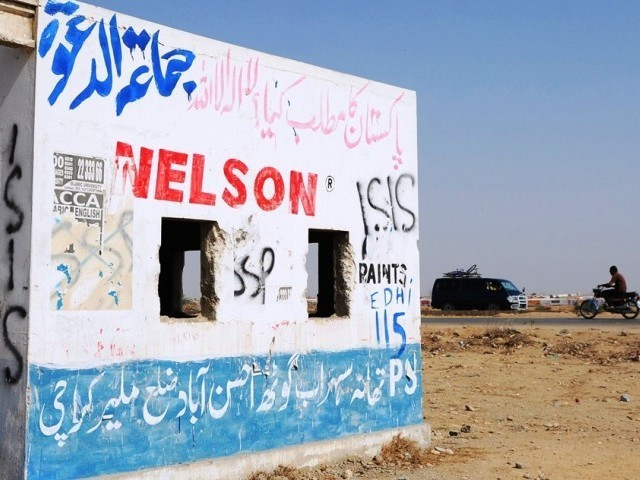Looming threat
Given Pakistan’s recent history, accepting possibility that IS may aim to make inroads would seem to be a logical one

Unless the gravity and extent of the security concern is accepted and accurately grasped, no deterrence can be planned PHOTO: AFP

The Taliban have, of course, already declared support for the fiercely anti-Shia force which has also carried out a series of beheadings and kidnappings. The fact that we face a threat from the IS was spoken of for the first time by the Foreign Office on February 23, when Foreign Secretary Aizaz Ahmad Chaudhry told the Senate Standing Committee on Foreign Affairs in Islamabad that the government was on the alert for this. He said agencies had been asked to keep a watch-out for individuals or groups in contact with the force. Mr Chaudhry however said Pakistan did not plan to join any international coalition against IS. His words, accepting a threat exists, contradict those of Interior Minister Chaudhry Nisar Ali Khan who, alongside his ministry, has consistently denied this.
The lack of coordination over the matter is disturbing. Given Pakistan’s recent history, with multiple militant groups operating within it, accepting the possibility that IS may aim to make inroads would seem to be a logical one. Denying the possibility of this of course leaves us exposed to more risk. Unless the gravity and extent of the security concern is accepted and accurately grasped, no deterrence can be planned. We need to speak with a unified voice, not a broken, disjointed one. Efforts must be made at the highest levels to devise a definite policy on the issue, come up with a single stance on what is a grave matter and ensure that we are in a strong position to deal with the problem. This can best be achieved when there is no ambiguity and the required cooperation between departments, so that we can know the true picture.
Published in The Express Tribune, February 25th, 2015.
Like Opinion & Editorial on Facebook, follow @ETOpEd on Twitter to receive all updates on all our daily pieces.














COMMENTS
Comments are moderated and generally will be posted if they are on-topic and not abusive.
For more information, please see our Comments FAQ